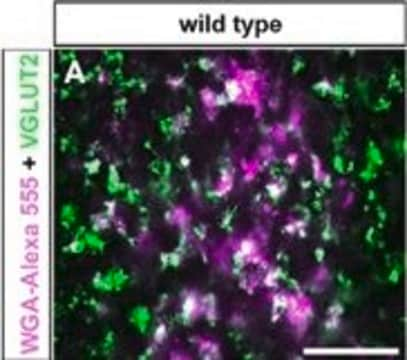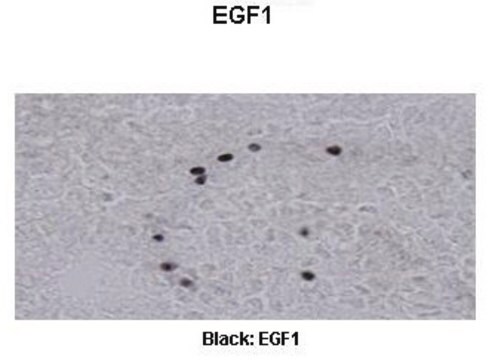OP17
Anti-c-Fos (Ab-1) Mouse mAb (2G9C3)
liquid, clone 2G9C3, Calbiochem®
About This Item
Recommended Products
biological source
mouse
Quality Level
antibody form
purified antibody
antibody product type
primary antibodies
clone
2G9C3, monoclonal
form
liquid
contains
≤0.1% sodium azide as preservative
species reactivity
rat, human, mouse
manufacturer/tradename
Calbiochem®
storage condition
do not freeze
isotype
IgG2a
shipped in
wet ice
storage temp.
2-8°C
target post-translational modification
unmodified
Gene Information
human ... FOS(2353)
General description
Immunogen
Application
Immunocytochemistry (2.5-5 µg/ml)
Paraffin Sections (not recommended)
Packaging
Warning
Physical form
Analysis Note
HeLa cells
Other Notes
Reiss, M., et al. 1990. Cancer Res.50, 6641.
RouscherIII, F.J., et al. 1988. Science240, 1010.
Sassone-Corsi, P., et al. 1988. Cell54, 553.
Giardina, S.L., et al. 1987. Anal Biochem. 161, 109.
Verma, I.M., et al. 1987. Cancer Res.49, 29.
Verma, I.M., et al. 1987. Cell51, 513.
Muller, R. 1986. Viochem. Biophys. Acta.823, 207.
Verma, P. 1986. Trends Genet.2, 93.
Greenberg, M., et al. 1984. Nature (London)311, 433.
Legal Information
Not finding the right product?
Try our Product Selector Tool.
Storage Class
10 - Combustible liquids
wgk_germany
nwg
flash_point_f
Not applicable
flash_point_c
Not applicable
Certificates of Analysis (COA)
Search for Certificates of Analysis (COA) by entering the products Lot/Batch Number. Lot and Batch Numbers can be found on a product’s label following the words ‘Lot’ or ‘Batch’.
Already Own This Product?
Find documentation for the products that you have recently purchased in the Document Library.
Customers Also Viewed
Our team of scientists has experience in all areas of research including Life Science, Material Science, Chemical Synthesis, Chromatography, Analytical and many others.
Contact Technical Service







